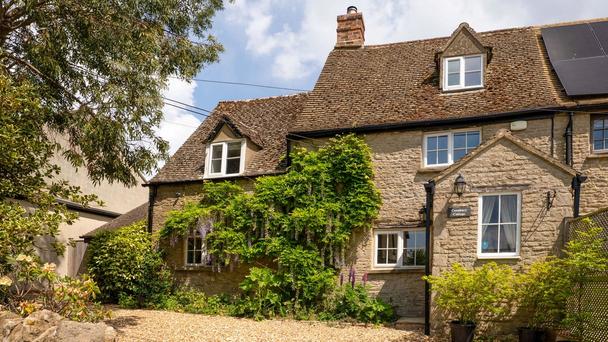
The Process Of Buying & Selling Your Home - A Solicitor's View

After making or accepting an offer, staying focused is crucial, as only two-thirds of sales reach completion. Familiar terms like "exchange," "completion," "protocol forms," and "enquiries" can be confusing, especially if it's been a while or if it's your first time. Here’s a concise breakdown to guide you through the process confidently.
Anti-Money laundering and Funds Checks:
Once you instruct your solicitor, they will perform identity checks, either in person or through systems like Thirdfort. They also need to verify the "source of funds," which includes understanding where the money comes from (savings, mortgage, gifts) and how it was obtained (salary, gifts, inheritance, or lottery winnings).
Protocol Forms and Supporting Documents:
The Law Society offers standard forms for sellers to complete, including but not necessarily limited to, the TA6 (Property Information Form) and TA10 (Fittings and Contents Form). These forms cover matters such as boundary maintenance, property works, and utility connections and are usually sent to the seller by the seller's solicitor during onboarding.
Contract Pack:
After a sale is agreed, the seller's solicitor sends a contract pack to the buyer's solicitor. This includes the property register and title plan, a draft contract, protocol forms and other supporting documents, such as an EPC certificate or warranties.
Searches:
Once the contract pack is received, the buyer’s solicitor will order several searches, typically taking 3-4 weeks to complete. These usually include:
- **Environmental Search**: Checks for issues like flooding and contamination.
- **Local Authority Search**: Provides information on planning permissions, road responsibilities, and local restrictions.
- **Drainage and Water Search**: Confirms whether the property uses mains water and sewers or private systems. Buyers often also arrange a structural survey. It's helpful to send a copy to your solicitor, but remember, they cannot advise on its contents.
Enquiries:
After the buyer's solicitor receives the contract pack and completes the searches, they will identify any further information needed regarding the seller's documents. This may include questions about work undertaken on the property or any rights exercised over it. These enquiries will be sent to the seller’s solicitor, with some questions answerable by them and others requiring the seller's input. Multiple rounds of enquiries and responses may occur, with additional information sometimes arising right before the exchange of contracts.
Exchange:
The exchange of contracts makes the sale legally binding. Prior to this, either party can withdraw without penalty. After the exchange, withdrawing from the transaction may incur costs for the defaulting party, and if a buyer withdraws they may forfeit the 10% deposit sent to their solicitor. Solicitors generally collect signed contracts in advance, but they won’t date them until they receive instructions to do so on the day of the exchange.
Between Exchange and Completion:
After exchange, there is usually a set period before completion, when the property officially transfers. This period is crucial organising removals and if a buyer is using a lender to finance the purchase then it is at this point the solicitor will request the funds.
Completion:
On completion, the buyer pays the remaining balance of the purchase price, and the transfer deeds are dated, transferring ownership. The seller should have vacated the property, and the keys are given to the buyer. There are further tasks that the buyer’s solicitor needs to handle, such as paying the Stamp Duty Land Tax and updatingHM Land Registry with the new owners details.


Why the Cotswolds Remains One of the Strongest Property Markets in the UK
Few regions in the UK combine lifestyle appeal, long-term value and consistent demand quite like the Cotswolds. Despite periods of national market uncertainty, the Cotswolds continues to stand out as one of the country’s most resilient and desirable property markets, attracting homeowners, investors, and international buyers alike. So, what underpins this enduring strength?
Why the Cotswolds Remains One of the Strongest Property Markets in the UK
A Personal Approach to Property: Client Experiences with Butler Sherborn
At Butler Sherborn, client experience sits at the heart of everything we do. Across sales and lettings, our teams pride themselves on professionalism, local knowledge and a truly personal approach. The following recent reviews from 2026 highlight just a few of the outstanding experiences our clients have shared.
A Personal Approach to Property: Client Experiences with Butler Sherborn
January Market Comment
January has seen us firmly up and running across the Cotswolds. Activity has been encouraging, with positive levels of interest and a busy start to the year. We have already agreed a good number of sales across our three offices in a range of different price points, which is a positive indicator of buyer intent following what was a very cautious 2025, with low confidence and many delays.
January Market Comment
Three Quintessential Cotswold Cottages – Full of Character & Charm
With Valentine’s Day just around the corner, there’s something undeniably romantic about the idea of escaping to a cosy Cotswold cottage. Think honey-coloured stone walls, crackling log fires and soft lamplight spilling across plush sofas - perfect for long conversations, shared glasses of wine and slow, unhurried mornings. In winter, the Cotswolds reveal a quieter kind of beauty, with misty lanes, frosted fields and snug village pubs just a gentle stroll away. It’s a setting steeped in charm and warmth, and utterly quintessential in its British appeal.
Three Quintessential Cotswold Cottages – Full of Character & Charm





